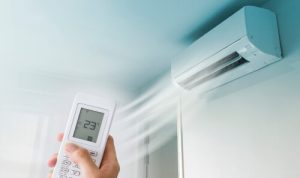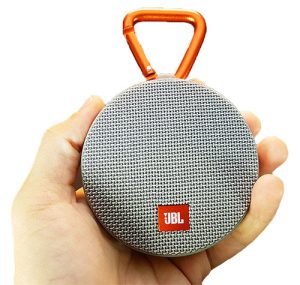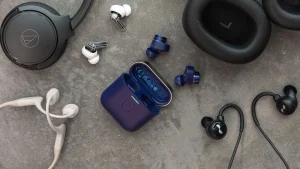Air purifier buying guide

What is an air purifier?
Air purifiers from brands like Blueair, Danby, Dyson, gerguardian, Honeywell, and Levoit are small appliances designed to help remove pollutants from the air in your home (or office space) so you can breathe fresher, cleaner air . This can include dust mites, mold, pet dander, bacteria, viruses, household chemicals and other volatile organic compounds (vocs). While air purifiers are most useful for those with allergies, asthma, and other respiratory conditions, they can benefit anyone.
A woman is sitting on a couch with a Blueair air purifier in her hands.
The air purifier can be placed on the floor or on another flat surface such as a shelf, table or desk. In addition to larger air purifiers designed to clean an entire room or even the floor of your home, there are also portable personal air purifiers that you can use on your desk in the office, for example. They can be operated manually, some automatically, or even on a schedule. The latest models sync with a mobile app so you can monitor the air quality in your home from anywhere.
How does an air purifier work?
Every air purifier contains a filter, and often multiple filters, which, along with a fan, help trap pollutants and then circulate cleaner air throughout your home. It’s that simple! The process works continuously, drawing in pollutants and expelling cleaner air, resulting in improved indoor air quality over time.
Plug the machine into a standard electrical outlet, turn it on, then adjust the speed settings, purge options, and let it do its thing.
Main types of air purifiers
There are several main types of air purifiers to choose from, and the best air purifiers offer multiple filters.
- HEPA Air Purifier
Clorox air cleaner, the filter is pulled out the top.
Many air purifiers often include a HEPA filter, the most effective type for trapping ultrafine particles in the air. They are claimed to capture 99.97% of particles as small as 0.3 microns, which can be dust, pollen, bacteria and smoke.
HEPA filters are made of pleated mechanical material with a specific thickness to effectively trap these particles. These fibers are arranged randomly and densely, so they can trap all types of particles, even those tiny ones. They use a combination of diffusion, interception and impact to achieve this.
- Activated carbon filter air purifier
The best air purifiers combine a HEPA filter and an activated carbon filter. These types of filters are made from sheets of carbon, constructed into granular or powdery blocks that have been treated to be porous. When organic compounds in the air react with activated charcoal, it absorbs pollutants and allergens.
German Guardian Elite Pluggable UV-C Air Purifier
Activated carbon filters are especially effective at trapping unpleasant odors, chemicals, and gases in the air. But as mentioned, they work best with an HEPA filter.
3.UV-C light purifier
Another completely different type of air purifier is the UV-C light purifier, which uses short-wave ultraviolet light to kill germs, viruses, bacteria, and other pollutants in the air. As air passes through the unit, it passes through an ultraviolet lamp that sterilizes the air through a process called germicidal irradiation. These air purifiers are usually not as effective as those with HEPA and activated carbon filters, and are often used with these machines, or contain a HEPA filter as well.
Costway Mini Ionic Air Purifier
- Ionic Air Purifier
A less common type of air purifier is an ionic air purifier, usually in a smaller, more portable size. They release negative ions into the air to attract positively charged air particles. But they produce trace amounts of ozone, which can also irritate the lungs. For this reason, while ionic air purifiers are generally more affordable, they are the least popular. Those with respiratory problems are also not advised to take these medications.
What are the benefits of an air purifier?
You know, air purifiers can purify the air. But what does cleaner air get you? As it turns out, there are many reasons why you might want an air purifier.
breathe cleaner air
The most obvious benefit of air purifiers is that they help you breathe cleaner, fresher air, free of pollutants, bacteria, viruses, mold, dust mites, pollen, and smoke. Overall, being able to breathe cleaner air benefits everyone, not just allergy or asthma sufferers. This is ideal, especially if you have young children or older family members in your home who may be more susceptible to illness and viruses.






